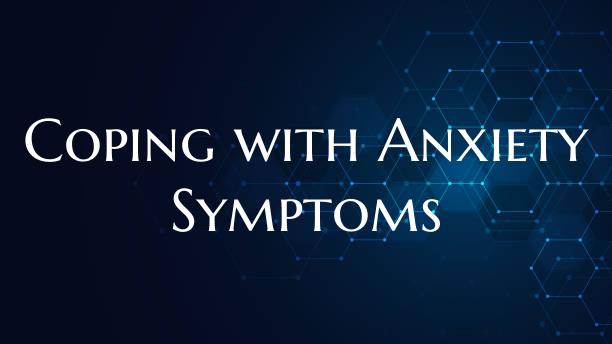
Coping with Anxiety Symptoms
Anxiety is a common experience that many people go through at some point in their lives. It can manifest in various symptoms such as racing thoughts, rapid heartbeat, sweating, and feelings of unease or nervousness. Coping with these symptoms can be challenging, but there are several strategies that you can try to help manage your anxiety and enhance your overall well-being.
1. Practice Deep Breathing: Deep breathing exercises can help calm your mind and body during moments of anxiety. Try taking slow, deep breaths, focusing on inhaling and exhaling fully. This simple technique can help reduce feelings of panic and promote relaxation.
2. Engage in Regular Physical Activity: Exercise is known to boost mood and reduce anxiety symptoms. Whether it’s a brisk walk, yoga, or dancing, physical activity can help release built-up tension and stress. Aim for at least 30 minutes of exercise most days of the week to experience the benefits.
3. Mindfulness and Meditation: Mindfulness techniques and meditation can help you stay centered and present, rather than getting lost in anxious thoughts. Practicing mindfulness involves staying aware of your thoughts and feelings in the moment without judgment. Meditation can also help you develop a sense of calm and focus.
4. Healthy Lifestyle Choices: Maintaining a healthy lifestyle can have a positive impact on your anxiety levels. Make sure to get enough sleep, eat a balanced diet, and limit caffeine and alcohol intake. These lifestyle choices can help support your mental and emotional well-being.
5. Seek Support: Don’t hesitate to reach out to friends, family, or a mental health professional for support. Talking about your feelings and experiences with someone you trust can provide comfort and perspective. Therapy or counseling can also help you address underlying issues and develop coping strategies.
6. Limit Stress: Identify sources of stress in your life and try to minimize them where possible. This could involve setting boundaries, prioritizing tasks, and learning to say no when necessary. Creating a more balanced and structured routine can help reduce anxiety triggers.
7. Relaxation Techniques: Explore relaxation techniques such as progressive muscle relaxation, guided imagery, or aromatherapy to help calm your mind and body. Find activities that bring you joy and relaxation, whether it’s reading a book, taking a bath, or listening to soothing music.
Remember that coping with anxiety symptoms is a process that may require time and patience. It’s essential to experiment with different strategies to find what works best for you. By incorporating these coping techniques into your daily routine, you can empower yourself to manage anxiety more effectively and lead a more fulfilling life.